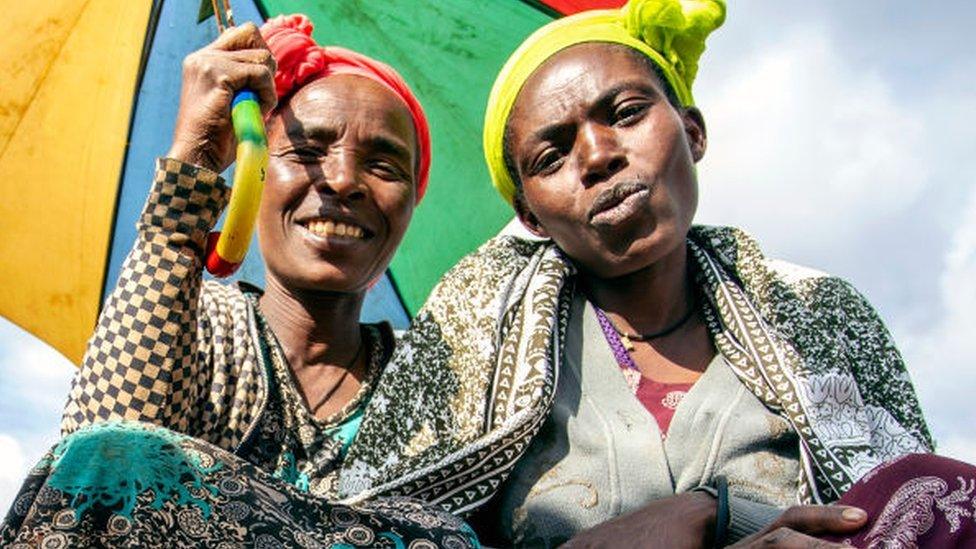Ethiopia's Tigray conflict: Street celebrations as rebels seize capital
- Published
Supporters of rebel forces in Ethiopia's Tigray region celebrate as Eritrean forces leave the town of Shire
Rebel forces in Ethiopia's northern Tigray region have retaken its capital, Mekelle, sparking street celebrations and forcing officials to flee.
Residents reported scenes of joy, with fireworks and thousands waving flags.
The government, which took Mekelle in November after Tigrayan rebels rejected political reforms and captured army bases, has now called a "humanitarian ceasefire" in the region.
The fighting has left thousands dead and has pushed 350,000 towards famine.
More than two million people have been displaced.
There had a recent upsurge in fighting between the Tigray People's Liberation Front (TPLF) and government forces outside Mekelle.
A rapid offensive led to the unexpected recapture of the city by the rebels on Monday.
A statement released by what was termed the Government of the National State of Tigray praised a "stunning victory", saying Mekelle was "now under the complete control of the Tigray Defence Forces".
It calls on rebel forces "to stay vigilant, relentless and on constant alert until Tigray is fully free of all invading forces".
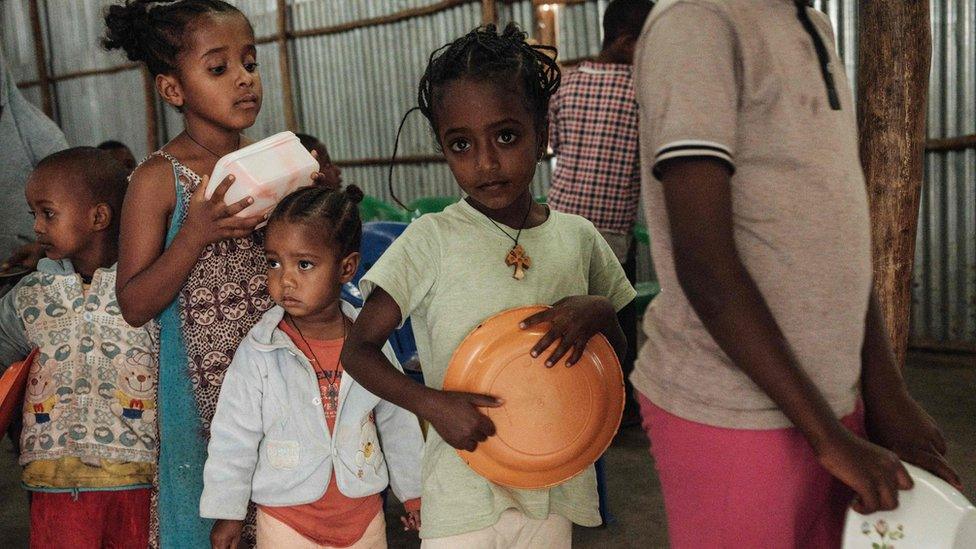
More than five million people are in urgent need of food aid in the region, according to the UN
Rebel spokesman Getachew Reda told Reuters news agency that Tigrayan fighters would "destroy the enemy" by entering the neighbouring Amhara region as well as Eritrea - whose troops have been supporting the Ethiopian army.
"We have to ensure that the enemy, whether from the Eritrean side or Amhara side or Addis Ababa, doesn't have the capability to threaten the security of our people anymore," he said.

A turning point?
Vivienne Nunis, BBC News, Nairobi
With TPLF rebels seizing back control of Mekelle, Prime Minister Abiy Ahmed appears to have had few options left when he unilaterally declared a ceasefire.
But by framing the decision as a "humanitarian" one, the government in Addis Ababa is attempting to save face.
So what now? The TPLF has so far ignored the ceasefire saying it's intent on driving out all so-called "invading enemies".
That means not just the Ethiopian troops, but the Amhara militia and Eritrean forces who have been fighting alongside the Ethiopian army.
The international community will be watching to see whether the ceasefire is a turning point, and in particular, whether humanitarian groups can now travel freely in the region to deliver supplies to the millions of people in desperate need of food.

Tigray - the basics
Since 1994, Ethiopia has been divided into states, now numbering 10; they are defined on ethnic grounds by the constitution and described as largely autonomous, but with central institutions
In 2018, following anti-government protests, Abiy Ahmed took over as prime minister and introduced reforms
Powerful politicians from Tigray, Ethiopia's northernmost state, accused Mr Abiy of trying to increase federal power
Relations worsened and, after the government accused Tigrayan rebels of attacking military bases, the Ethiopian army moved in in November, backed by Eritrean troops.
Mr Abiy declared the conflict over in late November, but fighting continued and increased ahead of national elections on 21 June.


A federal official told AFP news agency that the interim administration in Mekelle had decided to leave on Monday after rebels closed in "on every side".
Locals are celebrating. One eyewitness quoted by AFP said: "Everybody is out of their house. Everybody is excited and they have music on the streets."
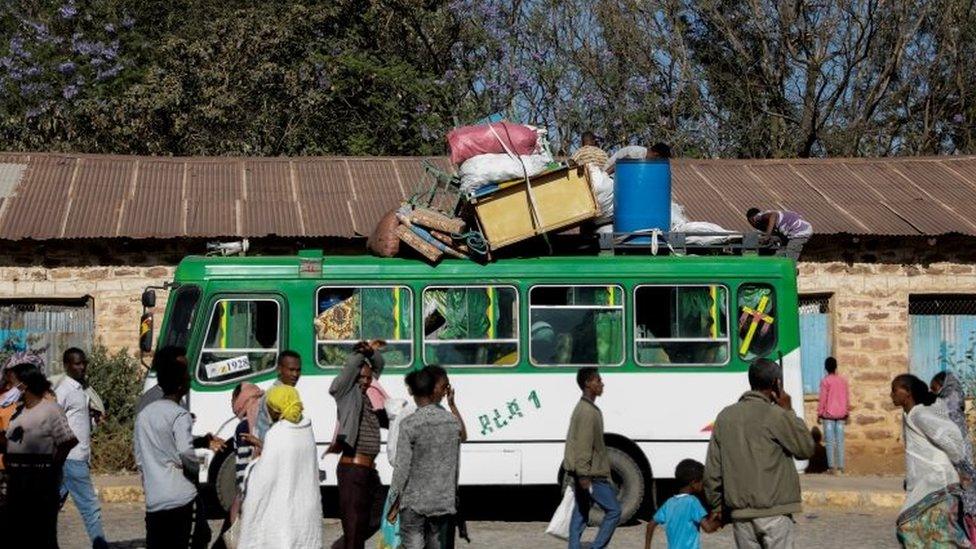
More than two million have fled the fighting in Tigray
Ethiopia's government said it was calling a military ceasefire for humanitarian reasons. It pointed to the need for aid workers to gain access, for farmers to get help during the planting season and for the return of internally displaced people.
The UK, the US and Ireland have called for an emergency UN Security Council meeting.
All sides in the conflict have been accused of carrying out mass killings and human rights violations.
The status of Eritrean troops remains unclear, although one resident of the town of Shire told Reuters the Eritreans appeared to be moving north, towards the border.
Earlier this month, the UN described a situation of famine in northern Ethiopia. The UN's World Food Programme (WFP), Food and Agriculture Organization and Unicef have all called for urgent action.
However Ethiopia's government has denied that there is a famine in the country.
Ethiopia is still awaiting the results of its 21 June parliamentary elections. Boycotted by some opposition groups and not held in some regions, including Tigray, they are expected to favour Mr Abiy.
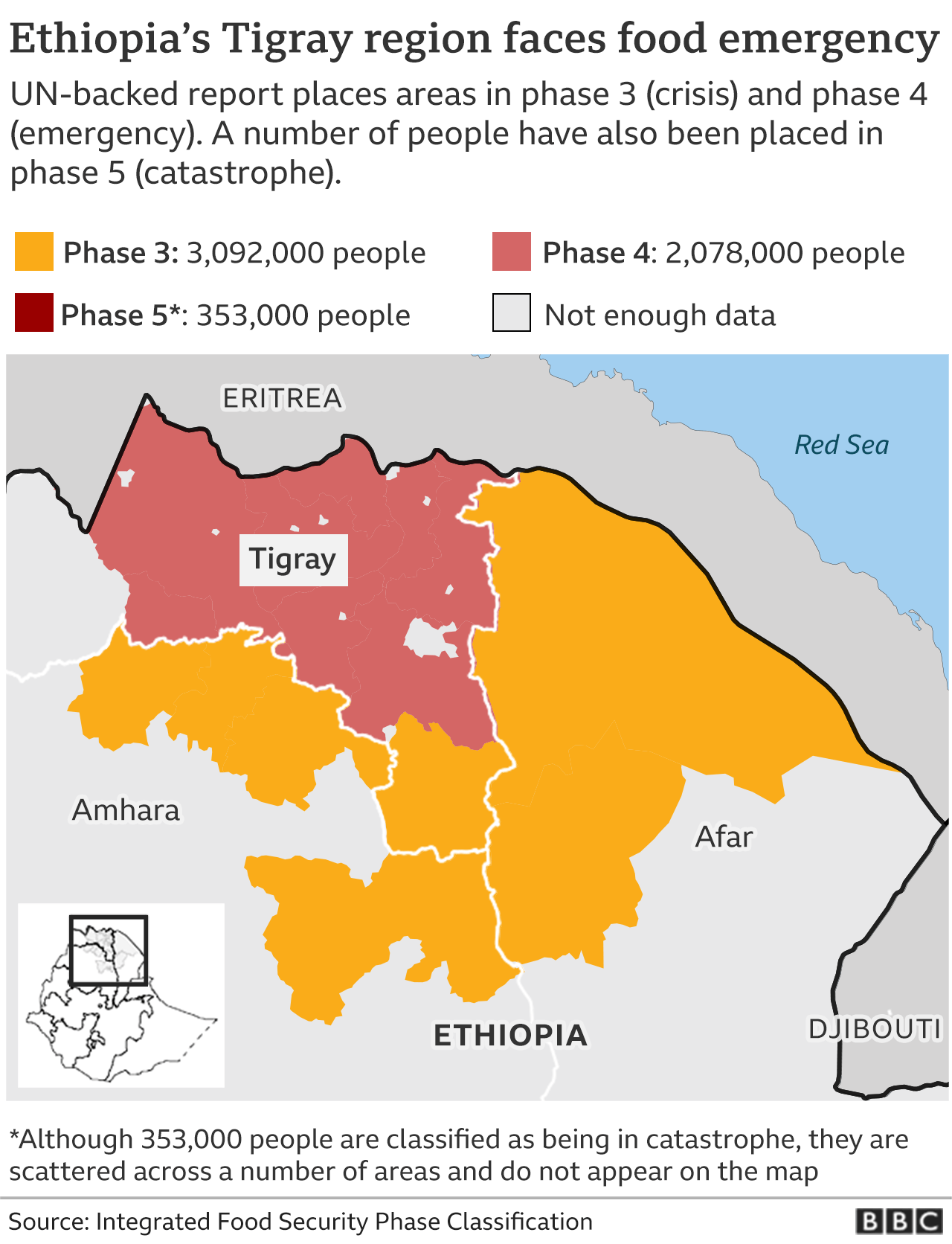

- Published15 February 2021

- Published26 February 2021
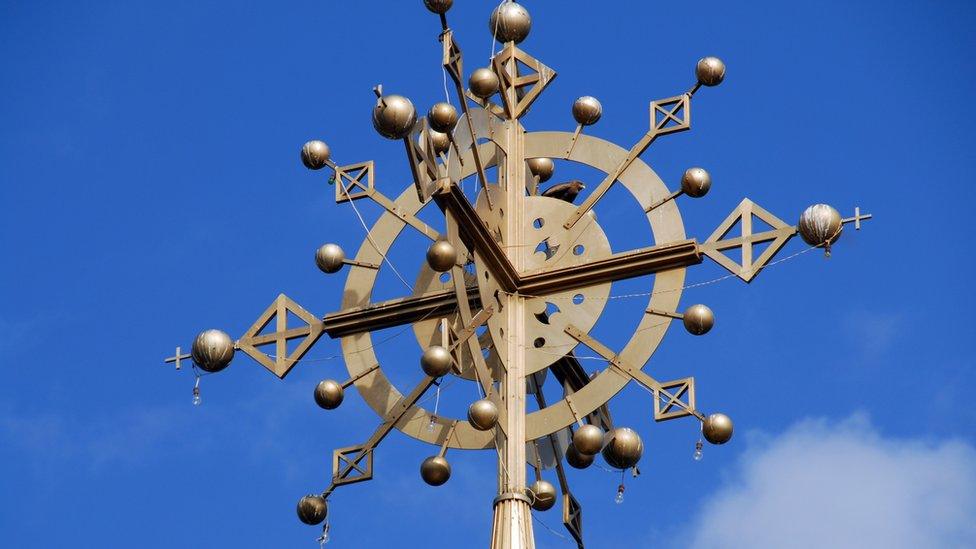
- Published19 June 2021
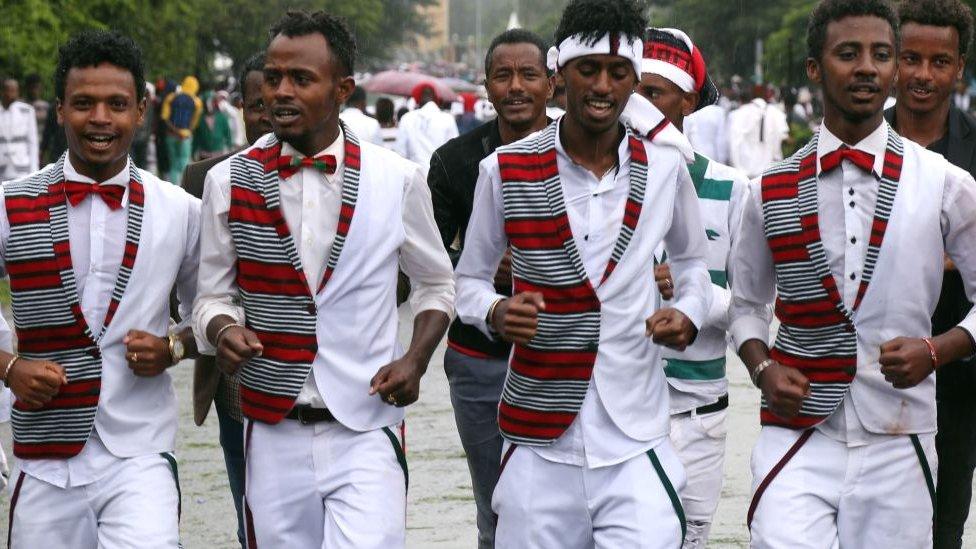
- Published18 June 2021
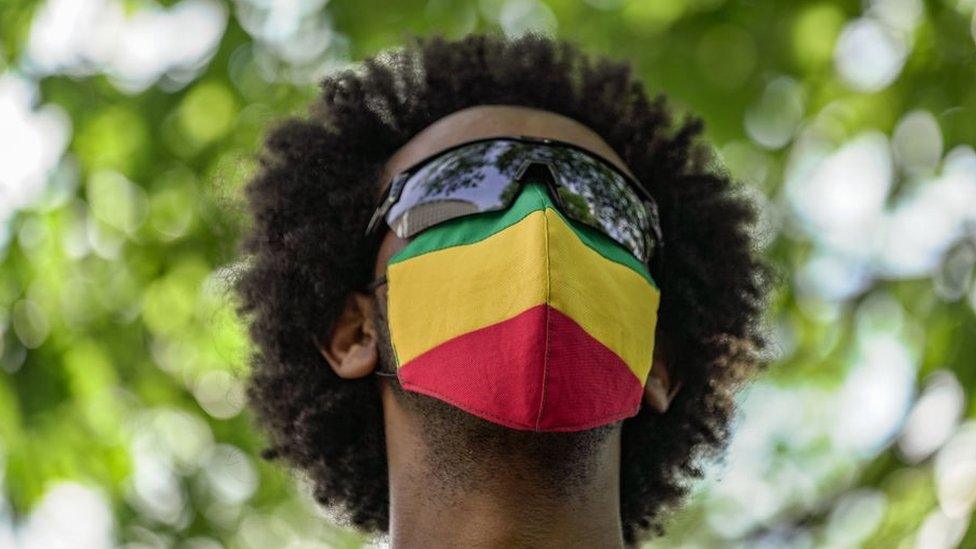
- Published16 June 2021
